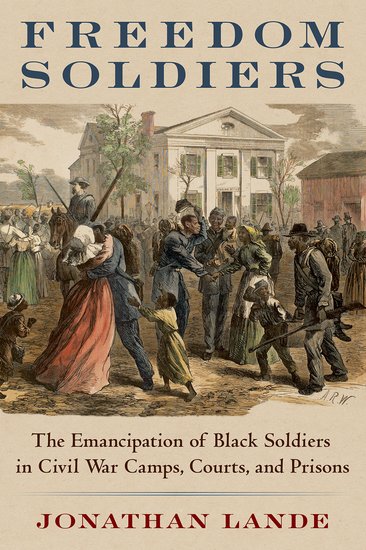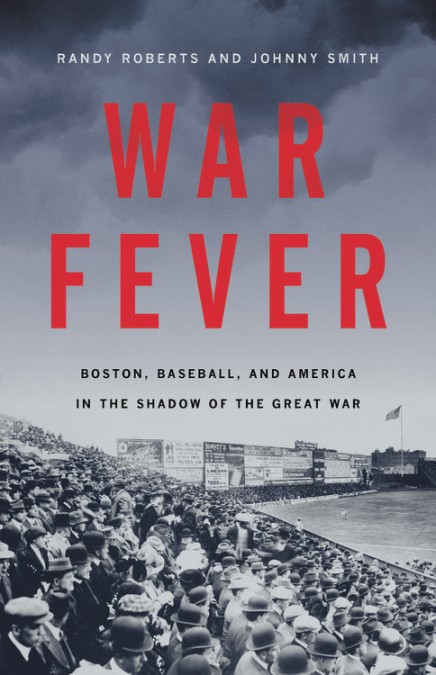History Research Latest News
Welcome to the Purdue History Research page. Here, you'll learn about recent publications, awards, and research initiatives led by faculty in the Department of History.
Research Profiles
Grants Awarded
Faculty Publications
Resources

Jonathan Lande book publication
Jonathan Lande’s first book, Freedom Soldiers: the Emancipation of Black Soldiers in Civil War Camps, Courts, and Prisons, has just been published by Oxford University Press. The book reveals that formerly enslaved soldiers serving in the Civil War fought for freedom not only on battlefields but also in US Army camps, courts, and prisons. Although military service provided Black troopers the chance to courageously combat their former captors, Freedom Soldiers shows that these armed freedom seekers decamped to secure liberties they deemed essential to liberation and defended their actions in the military justice system.
A book launch will take place on November 12, from 5:00 to 6:30 pm, in the John Purdue Room of Marriott Hall. Please RSVP by November 1 to Jennifer Merzdorf, jmerzdo@purdue.edu.
Reactions to Freedom Soldiers:
“Jonathan Lande’s Freedom Soldiers is a persuasive and unflinching account of what it meant to escape slavery and seek liberation in the highly disciplined world of the U.S. army during the Civil War. Lande’s sensitive reading of Black soldiers’ testimonies reveals an unmistakable truth: That the fight for liberation was all-encompassing and sometimes meant resisting one's own allies too. A welcome and original portrait of the hard-fought battle for Emancipation in the United States.” — Amy Murrell Taylor, Author of Embattled Freedom: Journeys Through the Civil War’s Slave Refugee Camps
“Freedom Soldiers draws on a terrific array of sources to reveal Black Union soldiers as enlisted freedom-seekers whose flight from slavery did not end in the ranks of the Union Army, but rather continued as they contested the terms of their employment and challenged strictures that impeded their sense of what freedom should mean. Jonathan Lande engages scholarly conversations about wartime emancipation, desertion, and labor history and tells us something new about each. Most of all, Lande brings Black Union soldiers alive, not as unidimensional tropes, but as fathers, siblings, husbands, dreamers, protestors, friends, advocates — in short, as fully realized individuals.” — Chandra Manning, Georgetown University
Dr. Kathryn Cramer Brownell Interviewed on "Matter of Fact"
President Joe Biden and former President Donald Trump are set to take part in a presidential debate under unique circumstances. First, the event is happening before the Democratic and Republican parties can formally nominate the candidates at their respective conventions. Plus, the Commission on Presidential Debates – the body that oversees and sets rules – will not be involved. Kathryn Brownell teaches history at Purdue University. She joins Soledad O’Brien to discuss the evolution of presidential debates and why it's still important for voters to tune in.
T. Cole Jones Receives Award for "Captives of Liberty"
Read Dr. Jones's For the Honor recognition here.
About the Book (from the publisher)
Contrary to popular belief, the American Revolutionary War was not a limited and restrained struggle for political self-determination. From the onset of hostilities, British authorities viewed their American foes as traitors to be punished, and British abuse of American prisoners, both tacitly condoned and at times officially sanctioned, proliferated. Meanwhile, more than seventeen thousand British and allied soldiers fell into American hands during the Revolution. For a fledgling nation that could barely afford to keep an army in the field, the issue of how to manage prisoners of war was daunting.
Captives of Liberty examines how America's founding generation grappled with the problems posed by prisoners of war, and how this influenced the wider social and political legacies of the Revolution. When the struggle began, according to T. Cole Jones, revolutionary leadership strove to conduct the war according to the prevailing European customs of military conduct, which emphasized restricting violence to the battlefield and treating prisoners humanely. However, this vision of restrained war did not last long. As the British denied customary protections to their American captives, the revolutionary leadership wasted no time in capitalizing on the prisoners' ordeals for propagandistic purposes. Enraged, ordinary Americans began to demand vengeance, and they viewed British soldiers and their German and Native American auxiliaries as appropriate targets. This cycle of violence spiraled out of control, transforming the struggle for colonial independence into a revolutionary war.
In illuminating this history, Jones contends that the violence of the Revolutionary War had a profound impact on the character and consequences of the American Revolution. Captives of Liberty not only provides the first comprehensive analysis of revolutionary American treatment of enemy prisoners but also reveals the relationship between America's political revolution and the war waged to secure it.

Randy Roberts Publishes "War Fever"
Randy Roberts (150th Anniversary Professor) has published “War Fever: Boston, Baseball, and America in the Shadow of the Great War,” (Basic Books, 2020) with Johnny Smith (Purdue PhD).